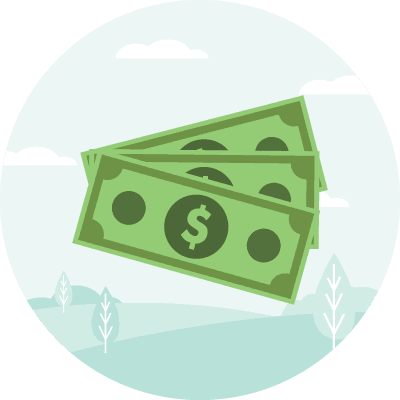What are Loan Points?
REtipster does not provide tax, investment, or financial advice. Always seek the help of a licensed financial professional before taking action.
Loan Points Explained
Loan points represent 1% of the amount borrowed; for example, one point on a $200,000 mortgage would cost $2,000. Each loan point typically lowers the mortgage interest rate by 0.25%, reducing the monthly mortgage payment. Most lenders allow borrowers to buy between one to three loan points, lowering the interest rate by a maximum of 0.75%.
This is not always the case, however. Each lender has their own pricing and discount structure, so the actual interest rate deduction depends on the lender, the mortgage type, the loan amount, and even market conditions.
Note that mortgage or loan points are not the same as loan origination points. Although each represents 1% of the loan amount, loan origination points are assessed to cover the lender’s administrative expenses. Loan origination points do not affect the mortgage interest rate.
The IRS classifies loan points as prepaid interest, which means they may be deductible on the tax return. Under the 2017 tax reform law[1], the prepaid interest deduction is limited to the first $750,000 of the mortgage.
Taxpayers can only deduct the full cost of loan points on the purchase of a property. If a borrower pays loan points to buy down the rate on a refinance, the deduction is spread out over the life of the loan. If a borrower arranges a 20-year refinance, they can deduct 5% of the cost of the points each year.
How Loan Points Affect a Mortgage
The table below shows how loan points affect a 30-year, $500,000 mortgage:
| 0 Points | 1 Point | 2 Points | 3 Points | |
| Cost at Closing | $0 | $5,000 | $10,000 | $15,000 |
| Interest Rate | 5% | 4.75% | 4.5% | 4.25% |
| Monthly Payment (Principal and Interest Only) | $2,684 | $2,608 | $2,533 | $2,460 |
| Monthly Savings | $0 | $76 | $151 | $224 |
| Break-Even Point | N/A | 5 years, 6 months | 5 years, 6 months | 5 years, 7 months |
| Total Interest Paid Over Life of Loan | $465,423 | $438,175 | $411,305 | $384,823 |
Generally, it takes five years or more to break even on mortgage points, so an investor should keep that in mind before deciding whether to pay loan points to buy down the rate. Obviously, the longer the loan is held, the higher the overall interest savings.
Is It Worth the Cost to Pay Loan Points?
Borrowers should consider two things when offered loan points to buy down the rate.
The first, as mentioned above, is the amount of time the borrower plans to keep the property in the existing financing structure[2]. If circumstances change—interest rates go down or the borrower’s credit profile improves—and a refinance is planned in the near term, loan points may not be worth the cost.
The second consideration is the borrower’s cash position. Buying down the interest rate may not be the best use of cash in a particular investment strategy. An investor may get much better returns using the cash for other purposes.
The decision to buy loan points is complex, and the borrower should consider the cash flow of the property, cash position, and opportunity costs before purchasing them. They should also account for how long the property will be held.
What Are Negative Loan Points?
Some lenders offer negative or reverse loan points[3], where they give the borrower cash to offset closing costs in exchange for a higher interest rate. Negative loan points are essentially a rebate.
Oftentimes, lenders who offer zero closing cost loans use negative loan points. In most cases, negative loan points are capped at 5, or 1.25% of the loan amount. Each point rebated to the borrower increases the mortgage interest rate by 0.25%. These arrangements are typically paired with low down payment mortgages or refinance loans.
Takeaways
Loan points are a way for borrowers to “buy down” the interest rate by paying more upfront in closing costs. Some taxpayers may be able to deduct mortgage points on their income tax returns.
When financing a home or investment property, it never hurts to get rate quotes with or without loan points. Evaluating all available options gives investors the best chance of getting the right loan for each situation.
Sources
- Internal Revenue Service. (2020.) Topic No. 504 Home Mortgage Points. Retrieved from https://www.irs.gov/taxtopics/tc504
- Connexus Credit Union. (2020.) Mortgage Points: What Are They & Should You Pay Them? Retrieved from https://www.connexuscu.org/2020/07/mortgage-points-what-are-they-should-you-pay-them/
- Donofrio, C. (2014.) Should You Choose Positive or Negative Mortgage Points? Realtor.com. Retrieved from https://www.realtor.com/advice/finance/choose-positive-negative-mortgage-points/








